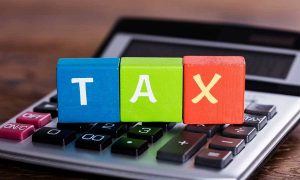As the deadline for filing an ITR approaches, taxpayers are advised to make necessary preparations to ensure a smooth and accurate submission.
As the deadline for filing an ITR approaches, taxpayers are advised to make necessary preparations to ensure a smooth and accurate submission.
The Income Tax Act, 1961 mandates the filing of income tax returns (ITR) under various circumstances, and adherence to the requirements is crucial for individuals and businesses alike. As the deadline for filing an ITR approaches, taxpayers are advised to make necessary preparations to ensure a smooth and accurate submission.
The deadline for filing income tax returns for individual taxpayers and those who don’t require an audit is July 31, 2023.
Documents for Individuals Owning Businesses
Business owners and professionals should assess their eligibility for the presumptive taxation scheme based on their gross receipts or turnover. If the turnover exceeds the prescribed limits, you’ll need to have your books of accounts audited and prepare for the audit. Upload the audited report on the e-filing portal while filing your ITR. For income with tax deduction at source (TDS), reconcile invoices and payments with TDS. From the income tax website, download Form 26AS and Annual Information Statement (AIS). Verify that TDS amounts in your books match these statements. If there are discrepancies, clarify with your client/customer.
Read More: Last date! Advance income tax payment deadline today: A step-by-step guide on how to do it online
Salaried Individuals
Salaried individuals must submit Form 16. Check for correct information on Form 16 on the tax deductions, including exempt income like House Rent Allowance (HRA) and Leave Travel Assistance (LTA). It is essential to review the form for accuracy and ensure that all deductions and investments are properly considered. If errors or omissions exist, notify your employer and tax consultant for corrective action and proper deductions when filing taxes. Verify that gross salary in Form 16 matches salary slips or bank account credits after deductions.
Individuals Dependent on Fixed Deposits
Individuals earning interest income from fixed deposits should obtain interest certificates covering the entire year. In the case of cumulative deposits, the interest accrued throughout the year must be included in the income calculation. Additionally, those following the cash basis of accounting should include the full interest from fixed deposits maturing during the year, irrespective of any renewals.
Read More: Income Tax Return: ITR-3 Form Available For Download Now; Check Details Here
Individuals Associated with Mutual Funds
Investors in shares and mutual funds must obtain detailed statements for the year, particularly for investments involving Systematic Transfer Plans (STP) and switches within the same fund house. These transactions may not be readily visible in bank accounts. Comprehensive transaction statements should be collected for shares purchased through a broker, and all transactions must be accurately accounted for in income calculations. Special attention should be given to intra-day transactions, as they may not be reflected in bank statements.
Finally, it is essential to download the latest Form 26AS and ensure that all transactions appearing in it are accurately accounted for in the taxable income calculation. This form contains various financial transactions, and taxpayers are advised to verify that these entries belong to them and have been appropriately considered.





































